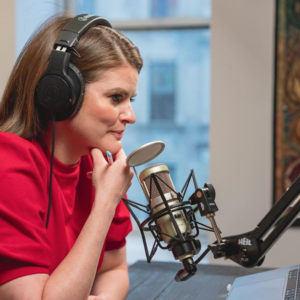No. Such a simple little word. In fact, it is one of the ten most common first words spoken by babies, while ‘yes’ isn’t even in the top 20. And yet, many of us turn into adults with an absolute fear or inability to say no. So why do we struggle with saying ‘no’? Let’s look at the root of this problem and the art of saying no.

Are you overwhelmed?
Are you constantly so busy that you don’t have time to do the things you love? Do you feel guilty during moments of rest, like you should always make productive use of your time? Do you miss having fun with family or friends? Are you compelled to do things that you really don’t want to do because it pleases someone else?

Too much to do, too many commitments, and too little time. This is a recipe for utter dissatisfaction and overwhelm. A person who is so stressed by an overwhelmed schedule usually lives with the struggle of an underwhelmed soul. And the single biggest reason for this is your inability to say no.
The inner dialogue
Life is not meant to be a rat race. If you are so busy trying to meet the needs of other people, you will miss out on the important things that you should say yes to because your schedule is full of things to which you should have said no.
We have limited time each day. The more you fill it with fruitless activities that do not contribute to your primary goals and desires, the less fulfilled you will become.

While you should be saying yes to things that align with your life goals and values, how do you end up in the trap of saying yes to so many things that don’t?
Here are some reasons you may think you say yes:
- Being flattered someone asked for your help or expertise
- Thinking no one else is able to do the job as well as you, or even that no one else would be willing
- Wanting people to like you
- Being afraid of hurting someone’s feelings or letting people down
- Being afraid of missing out on something
But actually, none of these reasons are the real reason you can’t say no. Let’s get to the root.
Why we say yes: The need to please
People who struggle with saying no are people pleasers. Their focus is to be liked. They are typically nice, agreeable people who shy away from conflict and strive to, well, please others.

Seeking Acceptance
Behind every people pleaser is someone who is looking for acceptance. It is hard for this person to say no because they genuinely fear that people will reject, dislike, or think badly of them for not being more agreeable.
Seeking Approval
People pleasers seek the approval of others. The fear of disappointing someone somehow diminishes their self value.
Insecurity
This is what it all boils down to, folks. Not really knowing who you are or feeling like you have to perform in some way to get approval and acceptance is the root of being a pleaser. So, how do you overcome and learn to say no?
Stop Being so Nice
We are taught as children to be nice. The Merriam Webster definition of ‘nice’ includes: pleasing and agreeable. Now let’s look at the definition of ‘kind’: polite, considerate, caring. Maybe we should stop being so nice and just be kind.
Kindness is being considerate for others’ feelings and desires, but not necessarily sacrificing our own in the process. We can love people and treat them with kindness without always having to go along with every idea or accept every assignment. Loving someone does not mean you have to please them at all times.
The problem is, many people equate being nice with being a good person. This is simply not true. On the contrary, allowing others to take advantage of you to the point that you are stressed, overburdened, and resentful does not add up to being a good person. Carefully evaluating opportunities and making a commitment only when it aligns with your values and you can give it 100%. . .that’s the making of a good person.
Let’s evaluate those reasons for saying yes
Being flattered someone asked for your help or expertise
It feels great when your skills, talents, or hard work are noticed by others. Naturally, the recognition is gratifying and it makes us want to say yes. But when you get right down to it, this is really about building up your own ego. Remember, you want to use your abilities for things that align with your core values and goals. Just because you have the skill set and you can do a good job, doesn’t mean you should.

Thinking no one else is able to do the job as well as you, or even that no one else would be willing
Here we are looking at our own ego again. Once you understand that there is always someone else who can do the job, you will feel less pressured to do it. If no one is willing to step up, realize and accept that that isn’t your problem either.
Wanting people to like you
Do you really want people to like you based on your willingness to please? The kind of person who’s friendship or approval depends on your performance or ability to help them isn’t someone you should strive to align yourself with. Ask yourself if that person would come through for you in a time of need.
Being afraid of hurting someone’s feelings or letting people down
Admittedly, you may actually hurt someone’s feelings when you say no. Especially if it is someone who is accustomed to you always saying yes. But it’s more important to stay true to yourself. What about not letting yourself down?
Being afraid of missing out on something
This one gets even the most discerning people. You know you don’t have the time, but it’s a worthy cause, so you acquiesce. Or you squeeze it in because it will be a great experience or because you like the people with whom you’d be working. Unfortunately, once again, wanting to be a part of something doesn’t mean that you should.
Stop putting yourself last
In the words of Jim Rohn, entrepreneur and motivational speaker, “If you don’t design your own life plan, chances are you’ll fall into someone else’s plan. And guess what they have planned for you? Not much.”
Working to please other people only leaves you depleted and often resentful. Making your desires, your goals, and your time a priority will lead you down the path of contentment.

Know what you want
Determine what matters to you and set your goals accordingly. Then limit yourself to making commitments that fall only within those parameters. There may be several facets to your goals: family, career, volunteering, etc. It is important not to get carried away. Keep your goals realistic. And then make a commitment to yourself to uphold those standards.
The Art of Saying No
So you are ready to make a commitment to saying no. But how is that done? If you are a pleaser, it may be really hard and it won’t always feel good at first. With practice, you will get better and better at voicing that one-syllable word.
Here are a few tips for saying no gracefully:
Don’t answer immediately

This is important. When you are presented with an idea or asked to help, never answer immediately. Even if the asker tries to pressure you. If they need an immediate answer, you can reply with something like, “I’m understand you need to know right now. I don’t take my commitments lightly, so I need some time to consider. If that isn’t okay then I will have to decline.”
Here’s another example. You are asked to help with something. You say, “I really appreciate you asking me. Let me have a day (or two, three, etc.) to think it over and make sure that I can give it my all. I’ll get back to you soon.” That wasn’t so hard, was it?
Be Assertive
After you’ve thought it over, be prepared to stick to your guns. People who want your help are often masters of manipulation, especially those who are used to you saying yes all the time. Go into the conversation with readiness to stand your ground and be bold.
When you’ve said no, the asker may try to manipulate you to change your mind. They’ll use tactics to make you feel as though they can’t do it without you. Simply say, “It sounds like you really need help. I hope you find someone who can commit. Right now it wouldn’t be fair to either of us for me to take this on.”

Don’t apologize
If you aren’t sorry, don’t say you are. When you apologize, it says that you feel guilty and opens the door for manipulators to attack. Instead of “I’m sorry, I can’t commit to that right now”, try, “Unfortunately, I can’t commit to that right now.”
Keep it Short
You may not have an excuse for why you can’t commit to an activity. So don’t feel compelled to make one up. The simpler your answer, the less room for argument, manipulation, or other methods of getting you to buckle.
Simply say, “unfortunately I can’t commit to that right now”. Or “I’m not able to help at this time”. You can show appreciation and validation with something like, “I really appreciate you thinking of me for this task. Unfortunately it isn’t something I can take on right now.” With any one of these statements, you never have to actually utter the word “no”, yet, you’ve artfully and respectfully declined to help.
Celebrate Success But Don’t Fret Failure

You did it! You finally said no to something you know you would’ve begrudgingly said yes to in the past. It may have made you sweat and squirm just a little, but you did it. Celebrate how empowered you feel. Relish in your freedom from the yoke of someone else’s expectations.
On the other hand, maybe you buckled. You wanted to say no, but you fell into old patterns. Or you just couldn’t take the pressure of the manipulator. It’s okay. Just review your resolve and move on. There’ll undoubtedly be lots of opportunities for you to practice saying no in the future.
Make a Decision
So now you can decide. Continue being manipulated and controlled by others’ plans for you, or take action steps to living your passions and desires? One thing is for sure, you do have to decide. Because not making a choice is actually a choice in and of itself. It is a decision to stay the same.
What are your strategies for avoiding manipulation and saying no? Comment below and share what has helped you.
Ready to practice saying no? Try this Liquid Courage Roll On for boldness!
For even more empowered choice strategies and advice, come !












